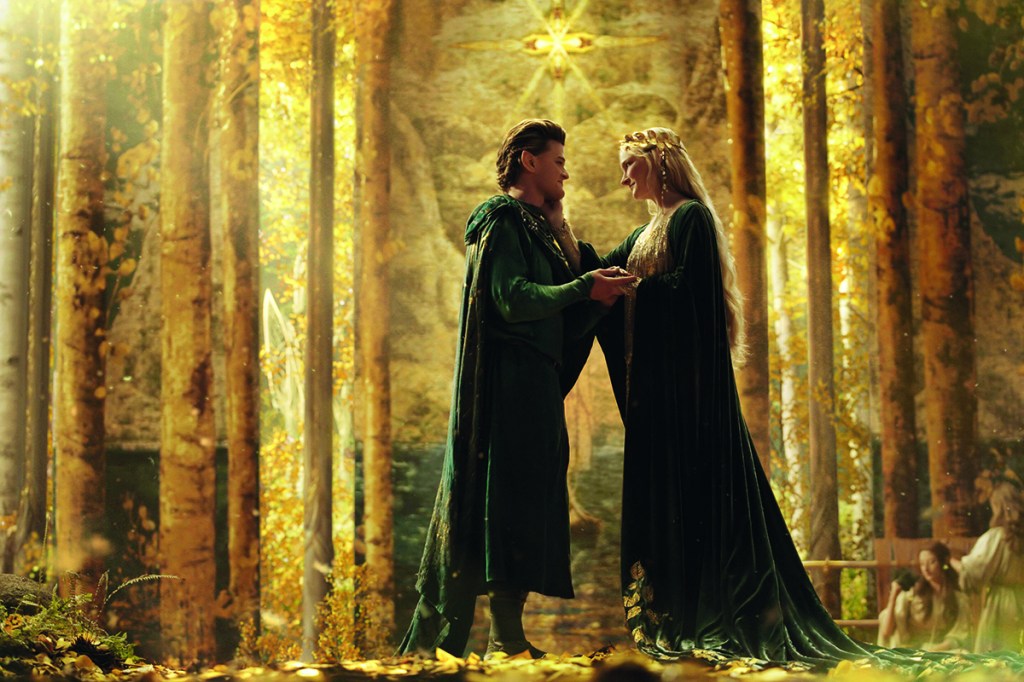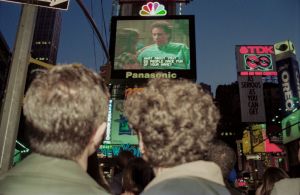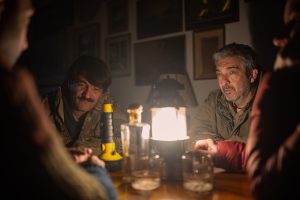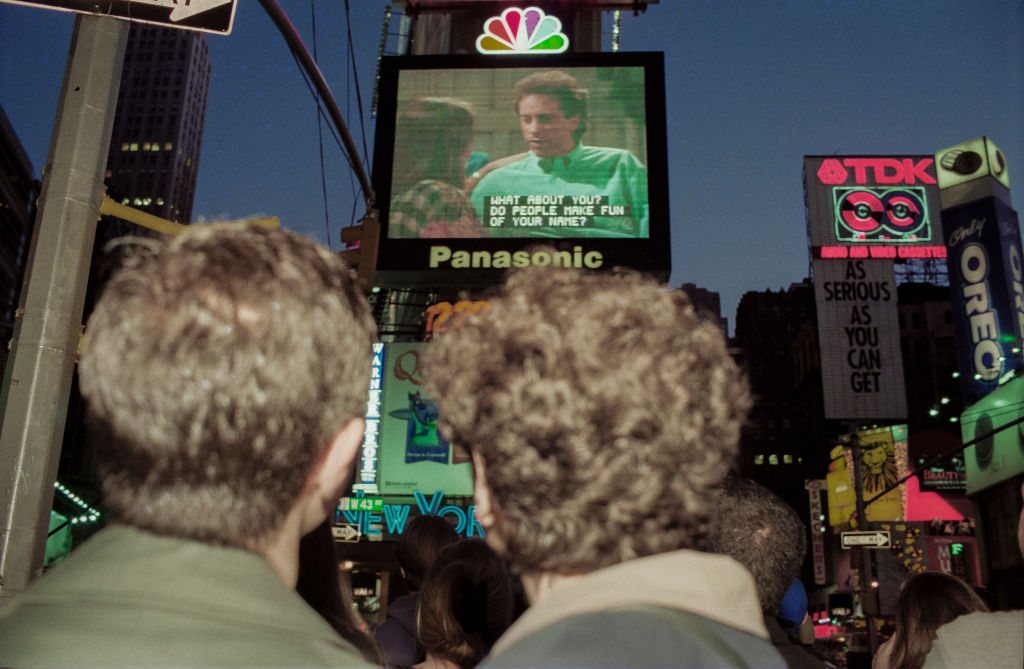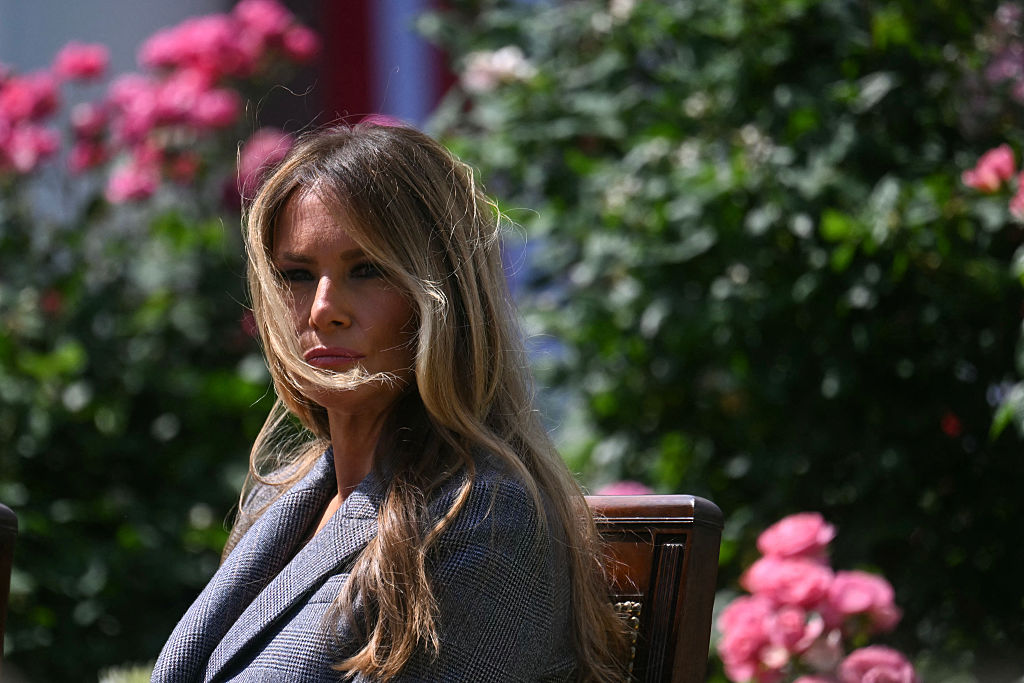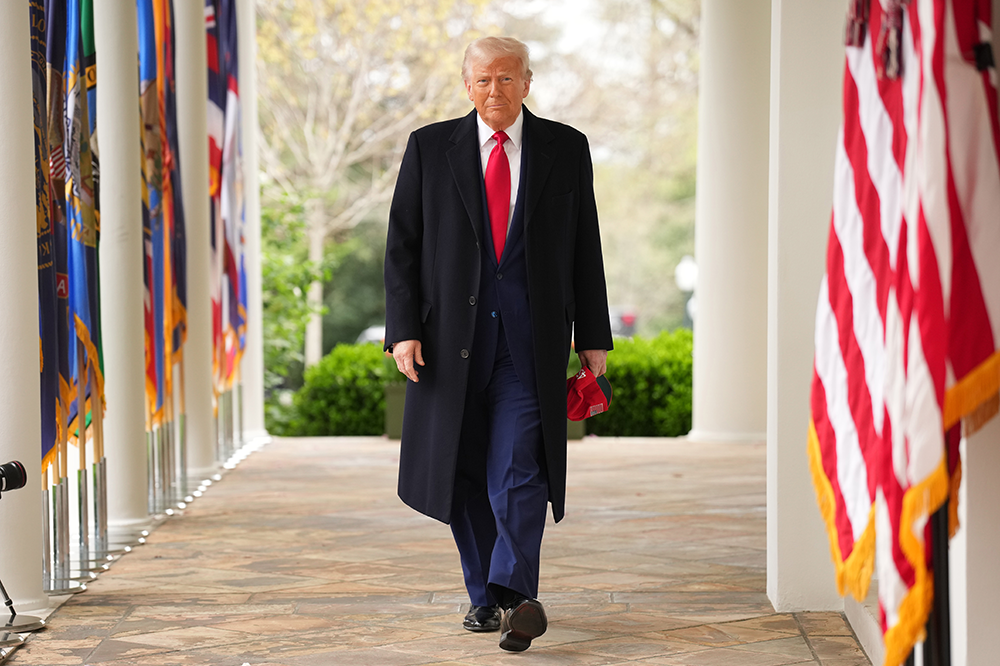“Ours was no chance meeting. Not fate, nor destiny,” Galadriel says. “Nor any other words Men use to speak of the forces they lack the conviction to name.” The line is a bit pompous, but then so is the hotheaded elven warrior (Morfydd Clark) who speaks it in Amazon’s Lord of the Rings: The Rings of Power.
Pomposity aside, Galadriel’s words reveal why the work of J.R.R. Tolkien is unique in a crowd of fantasy competitors. Anyone can give us elves and dragons and wizards. But few can match the anguished, longing note of hidden Providence in Tolkien’s Middle-earth. The Rings of Power has not yet achieved such depths of feeling — perhaps it will not be capable of doing so — but it has shown prudence in its stewardship of the story’s heart, which is encouraging.
When Amazon bought the rights to part of Tolkien’s world back in 2018, I warned that the showrunners, J.D. Payne and Patrick McKay, “must capture not just the mythos but the ethos of Tolkien’s world.” Everything else — art design, casting, music — is simply cosmetic.
Ethos is even more important for The Rings of Power than for The Lord of the Rings. Religious undertones were present in Peter Jackson’s films, but it was easy to avoid explicit talk of Middle-earth’s vast quasi-Christian mythology because it seldom affected the storyline in obvious ways. Since The Rings of Power is set thousands of years before The Lord of the Rings, in a period where supernatural beings walked more openly, it must tackle the religious worldviews of the characters.
This is a difficult moral and artistic challenge: how does one represent spiritual things gracefully and obliquely, without the awkwardness of outright allegory? (Tolkien considered the explicit allegorizing of his friend C.S. Lewis’s Chronicles of Narnia to be an artistic failure.) Tolkien referred to his work as “fundamentally religious and Catholic,” but faith is not addressed explicitly. As one perceptive fan wrote, “some sort of faith seems to be everywhere” in Middle-earth, but “without a visible source, like light from an invisible lamp.”
So far, the Rings of Power showrunners have wisely recognized that images and echoes — falling tree petals, birdsong and light — are far more effective and evocative than CGI cameos of superpowered titans. And they’ve avoided (with a few exceptions) the impulse to reduce Tolkien’s moral complexities into Manichaean platitudes about light and dark. Instead of “the Force” we get something far more purposeful, for behind everything is a person. Or persons. The characters seem totally comfortable referring to “the gods” while dancing around He who created the gods.
The greatest flaws in The Rings of Power are those of craft — pacing and dialogue in particular. A few casting choices don’t ring true: I refuse to believe the petite Bronwyn (Nazanin Boniadi) has ever put in a full day’s work out of doors, especially in that spaghetti-strap dress. That said, Arondir (Ismael Cruz Córdova) makes for a tremendously compelling action hero. The dialogue can be workmanlike and clichéd. There’s a lot of backstory in the first two episodes — too much, really, and too fast — often expressed in clumsy or excessive exposition. If the plot ends up going nowhere, then its slow pacing will seem, in retrospect, plodding rather than deliberate. But the show has improved in these areas with each subsequent episode.
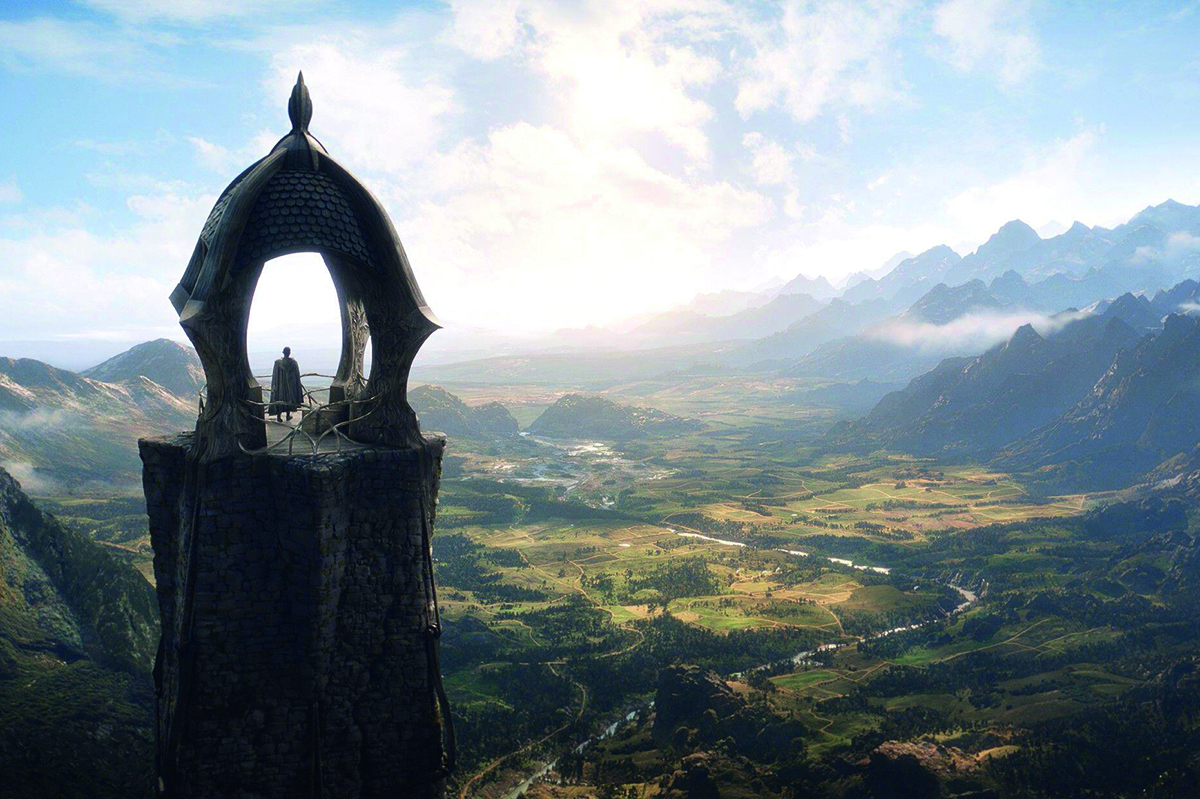
Lore has been condensed fairly dramatically to fit into this format: a translator’s liberty that is unavoidable unless you want to tell stories entirely from the vantage point of pretentious immortals. As Tolkien himself realized, it’s essential to have a mortal, “low” perspective to anchor great events. What’s less defensible is the way the series removes the difficulty of travel. Characters zip from place to place, and the horizon of possibilities seems warped by the minds of writers raised in an age of cheap flight and internet immediacy. Similarly, the compression of time — how much time has passed, a week? — takes a harsh toll on the series’ ability to feel epic in scope.
And we’re not entirely free of pretentious immortals. Galadriel’s doom-laden quest hints at many themes: power, death, complacency, the inability to come back from war, the inability to go to war again. For the first two episodes, these concepts are largely drained of their drama by the nature of prequels. We already know Sauron will come back. So, of course, Galadriel is right. She also glows with the sort of righteous Strong Female energy that often insulates such characters from fallibility.
But both of those things are red herrings. Other villains begin to appear in subsequent episodes. As Galadriel’s certainty mixes with impatience and hubris, we truly begin to wonder — not whether she’s right, but whether she’s right in the wrong way — and thus grows the drama of her quest.
The introduction of Númenor, an island kingdom bedecked in silk and gold and luxury, does a lot to liven things up. It’s a decadent culture that evokes Rome, and there is a religious minority hidden within it, maintaining faith in the old ways. Perhaps Elendil (Lloyd Owen) shares some things in common with the Apostle Paul. Whether Queen-Regent Miriel (Cynthia Addai-Robinson) will be Constantine or Nero remains yet to be seen.
Despite improvements in the main storyline, the plots that operate free of weighty mythological imperatives are still the best. The “harfoots,” prehistoric hobbits, feel like they’ve stepped out of an Edwardian fairytale crossed with Beatrix Potter and The Borrowers, hiding from the Big People under hedgerows and toadstools.
Nori (Markella Kavenagh), the harfoot protagonist, glows with earnest wanderlust, and her friend Poppy (Megan Richards), a more practical sort, adds the sort of down-home wisdom of a sidekick like Samwise Gamgee. These performances, utterly lacking in affectation or tongue-in-cheek humor, hit just the right note. (It’s hard to avoid self-aware hobbits now — contrast Elijah Wood’s sincere Frodo with Martin Freeman’s gawky mugging to the camera as Bilbo Baggins.) Similarly, the dwarves of Khazad-dûm, unconcerned with the weightier matters of the outside world, are engaging characters.
One area where imagination seems rather lacking is in how the show recycles Tolkienian tropes. We have a storyline where hobbits discover (what’s probably) a wizard, together with an elf-human romance and a long-lost king. Yet there are also hints that these storylines may be in for some interesting subversion.
It should be noted that The Rings of Power does justice to the aesthetics as well as the ethics of its world. It abounds in spectacle, which at times ascends to beauty. It is free of the popular tendency to privilege all that is ugly and transgressive over what is fair and pure.
My praise for the show’s ethos could be premature. Its translation of Númenorean hatred for the elves into economic anxiety about immigration is pretty boring. I’m grateful that The Rings of Power eschews the sexual excess, hyperviolence and nihilism of Game of Thrones and that its ambitions are far more adult and earnest than the MCU popcorn thrillers. But we should expect it to grow to greatness on its own terms, and it’s not there yet.
That said, as I watched these characters grapple with the consequences of visions and signs, speaking unironically about the spiritual imperatives that can compel great acts, I thought to myself: we never see something like this on television. The lamp of faith may flicker dimly, but in a TV landscape barren of light? It’s an encouraging thought.
This article was originally published in The Spectator’s November 2022 World edition.



